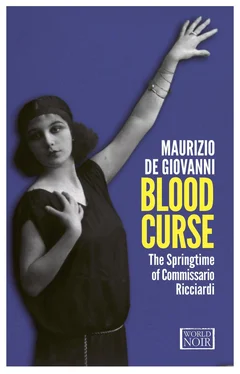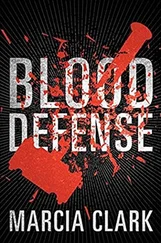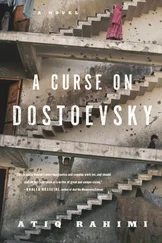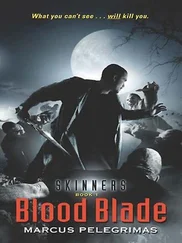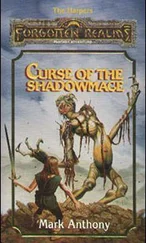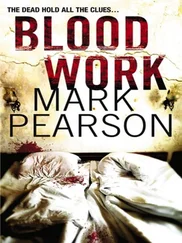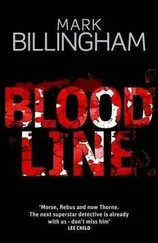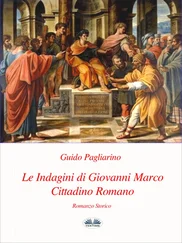Maurizio de Giovanni - Blood Curse
Здесь есть возможность читать онлайн «Maurizio de Giovanni - Blood Curse» весь текст электронной книги совершенно бесплатно (целиком полную версию без сокращений). В некоторых случаях можно слушать аудио, скачать через торрент в формате fb2 и присутствует краткое содержание. Жанр: Исторический детектив, Исторический детектив, на английском языке. Описание произведения, (предисловие) а так же отзывы посетителей доступны на портале библиотеки ЛибКат.
- Название:Blood Curse
- Автор:
- Жанр:
- Год:неизвестен
- ISBN:нет данных
- Рейтинг книги:3 / 5. Голосов: 1
-
Избранное:Добавить в избранное
- Отзывы:
-
Ваша оценка:
- 60
- 1
- 2
- 3
- 4
- 5
Blood Curse: краткое содержание, описание и аннотация
Предлагаем к чтению аннотацию, описание, краткое содержание или предисловие (зависит от того, что написал сам автор книги «Blood Curse»). Если вы не нашли необходимую информацию о книге — напишите в комментариях, мы постараемся отыскать её.
Blood Curse — читать онлайн бесплатно полную книгу (весь текст) целиком
Ниже представлен текст книги, разбитый по страницам. Система сохранения места последней прочитанной страницы, позволяет с удобством читать онлайн бесплатно книгу «Blood Curse», без необходимости каждый раз заново искать на чём Вы остановились. Поставьте закладку, и сможете в любой момент перейти на страницу, на которой закончили чтение.
Интервал:
Закладка:
The first of the balconies overlooking Piazza Carità threw open their shutters, bringing it to life. As he walked toward police headquarters, it dawned on Ricciardi, the way it did every morning, that he’d never have a choice, that there was only one profession for which he was suited in life. He’d never have the strength to ignore the pain, to turn away from it, or travel the world scattering his money with a free hand. There’s no escaping who you are. He knew that his distant relations couldn’t understand why he, the only child of the late Barone di Malomonte, didn’t take his place as the new Barone di Malomonte, capitalizing on the social advantages that would come so easily with that title. He knew that his Tata Rosa, the nanny who had raised him from his infancy and was now in her seventies, ardently wished to see him at peace, living an untroubled life. No one could explain his prolonged silences, his downcast gaze, the constant gloom that absorbed him.
But, as Ricciardi knew full well, it hadn’t been his lot to choose; he was obliged to walk against the wind, buffeted by the last shifting gusts of grief of all the dead people he met along his path. So that he could complete the work that death hadn’t had time to finish.
Or at least try to.
In the placid early morning air, Ricciardi walked into the building that housed police headquarters. The watchman at the front door, half-asleep in his guard booth, made an attempt to leap to his feet and salute him military-style, but he succeeded only in knocking over his chair with a sharp crack of wood that echoed across the courtyard. Irritated, he shot the spread index-and-pinkie sign of the cuckold toward the back of the commissario, who hadn’t so much as waved in his direction.
Ricciardi wasn’t well liked by the staff at headquarters, whether uniformed or administrative; and it wasn’t because he was a bully or took a hard line. If anything, he was the one most likely to conceal the oversights or failings of others from the notice of the top brass. Rather, it was that no one could figure him out. His solitary, taciturn personality and behavior, the seeming absence of any weakness, and the complete lack of information about his private life did nothing to encourage camaraderie or fellowship. And then there was his extraordinary ability to solve cases, which had something of the uncanny; and there was nothing that struck more fear into the heart of that city’s populace than the supernatural. The idea that working with Ricciardi brought bad luck became increasingly deep-rooted. It was becoming a matter of course for those assigned to one of his cases to be kept home by a convenient but debilitating head cold, or, even worse, for his presence to be blamed for mishaps that had nothing to do with him.
A self-perpetuating state of affairs: the greater the void Ricciardi created around himself, the happier other people were to steer clear of him. The commissario seemed not to be aware of this, much less bothered by it.
With his superiors, the deputy chief of police, and the police chief himself, things were no different. These weren’t years in which one could easily afford to dispense with the services of such a talented individual. Increasingly, Rome had been interfering with the independence of police headquarters, and the police were expected to provide evidence of their successful investigations by tossing a guilty party to the press. The regime demanded that the image portrayed of Fascist life in the big cities convey safety and high hopes. Ricciardi, with his rapid and unorthodox way of cracking cases, was perfect.
But there was no denying that his presence created a sense of unease. He wasn’t welcome, and so his merits were overlooked. He was denied the promotions and the opportunities that he objectively deserved. They might not be able to do without him, but they weren’t about to reward him, either. For that matter, Ricciardi didn’t seem to care about advancement in the least. He was constantly absorbed in his work, more a priest militant of justice than a civil servant, bent over his desk or striding through the seamiest quarters of the city, in the driving rain or the blistering heat of summer, frantically seeking the source of the suffocating grief and pain that engulfed him.
Within the barricade of mistrust that surrounded him, however, there was at least one person he could count on.
IV
Brigadier Raffaele Maione sipped his coffee looking out from the balcony, enjoying the panoramic vista. Truth be told, the liquid in his demitasse wasn’t proper coffee at all; he wasn’t sure he could even remember what real coffee tasted like. For that matter, the word “balcony” didn’t accurately describe the oversized windowsill with an undersized railing which the landlord of the building in Vico Concordia had installed some twenty years ago, without a permit. And last of all, the labyrinth of dark alleyways that stretched out as far as the eye could see, riddled with hunger and sordid dealings: only an absurd stretch of the imagination could justify calling it a vista.
But Maione possessed the requisite imagination, and the optimism, too. God, did he have optimism. And God alone knew how much he had needed it, to get through certain times in his life.
As the darkness gave way to the first light of dawn, Maione sniffed the air in the same way the dogs had sniffed it a few hours earlier. Today, there was a different smell in the air. Perhaps it had come at last; perhaps that interminable winter was finally over. Another springtime: the third without Luca.
There were times when he could hear his laughter. A fine laugh, disjointed and loud, a laugh that announced his arrival. Perhaps it was that very laugh that had been his undoing. He would never know. Maione looked at his hand, and then at his arm; it was dark-complected and big, solid and powerful in spite of his fifty years.
Unlike Luca: his boy had been blond like his mother and, like her, he laughed all the time. Except that Maione hadn’t heard his Lucia laugh once since that day. Of course, life went on-and how could it stop, with five more children to bring up? But laughter: never again. On winter nights, when the children were asleep and time stood still, Luca would come home cheerful as ever to cradle his mother in his arms, to hoist her in the air laughing; or to tease his father, calling him a potbellied old timer, standing proud in his new uniform, a newly minted rookie on the police force.
On that still-chilly morning, springtime brought the brigadier the scent of his son’s blood. And the memory of how Deputy Officer Ricciardi, that strange young policeman no one wanted to work with, had shut himself up in the cellar, alone with the corpse, for five endless minutes. And how Ricciardi, gripping Maione’s arm and staring him straight in the eye, had brought him Luca’s last message of love, couched in words of tenderness that he couldn’t possibly have known. Even now, three years later, the love and horror he felt still made him shiver.
Since then he had been the commissario’s trusty squire. He would brook no bad-mouthing of Ricciardi from anyone, not the slightest hint of mockery.
He was also the guardian of Ricciardi’s very particular police procedure, which involved a preliminary solitary inspection of the scene of the crime. Maione would keep everyone else back as the commissario tuned in to whatever had happened there; Maione was also his confidant for what little Ricciardi was inclined to share, which was very little indeed. These confidences amounted to reasonings, spoken out loud, musings on the investigation underway, but through those musings Maione was able to guess at his character, simply by dint of his own experience. Each time it was as if this were Ricciardi’s own personal crusade, his own loss, his own infamous wrong to be avenged, an injustice visited upon him in need of restitution. Ricciardi wasn’t like the others, who investigated for money, advancement, or power; he’d met so many. No, Ricciardi wasn’t like the others.
Читать дальшеИнтервал:
Закладка:
Похожие книги на «Blood Curse»
Представляем Вашему вниманию похожие книги на «Blood Curse» списком для выбора. Мы отобрали схожую по названию и смыслу литературу в надежде предоставить читателям больше вариантов отыскать новые, интересные, ещё непрочитанные произведения.
Обсуждение, отзывы о книге «Blood Curse» и просто собственные мнения читателей. Оставьте ваши комментарии, напишите, что Вы думаете о произведении, его смысле или главных героях. Укажите что конкретно понравилось, а что нет, и почему Вы так считаете.
